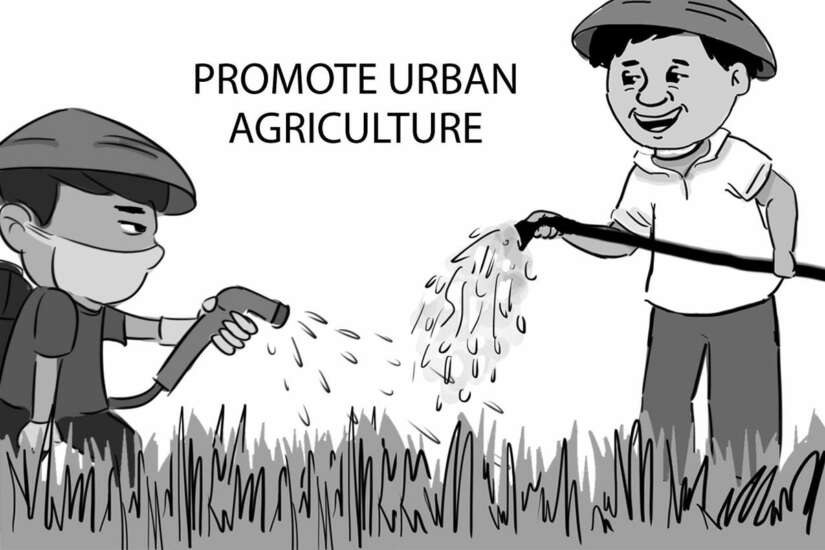GIVEN the still mushrooming number of Filipinos seeking jobs in foreign lands and the burgeoning Philippine population, the government should now look deeper into the question of “food security.”
Like the previous administrations, the crusading Duterte government, which is set to end at 12 noon on June 30 next year, is hard-pressed to win the battle against hunger, poverty and unemployment.
Without doubt, alarming are projections that the country’s more than 100 million population, many of them poor farmers, fishermen and laborers, will double in 50 years time, worrying the authorities.
What is needed is for the two-chamber Congress – the Senate and the House of Representatives – to come up with landmark pieces of legislation aimed at meeting the food needs of the people.
And the public is heartened that the Lower Chamber of Congress has passed on third and final reading House Bill (HB) 8385, which seeks to promote urban agriculture across the Philippines.
Pangasinan 4th District Rep. Christopher “Toff” de Venecia, son of ex-House Speaker Jose de Venecia, is one of the authors of HB 8385, which consolidated several bills promoting “urban agriculture.”
De Venecia said the proposed law aims to inculcate in the minds of the Filipino people that food production can be done not only in the countryside but also in urban areas throughout the Philippines.
The consolidated bill mandates local government units (LGUs) to identify and develop idle government lands and private lands and buildings and open spaces within their jurisdiction.
Under the proposal, the Department of Agriculture (DA) is duty-bound to provide the necessary technical assistance and support services, including the provision of seeds and gardening tools.
The measure is seen to transform idle public and private lands into “food baskets” as part of government efforts to ensure “food security” in the face of the galloping Philippine population.

